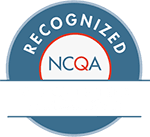Table of Contents
ToggleHere are the top health risks of sleep apnea as described by doctors near you
Ask your doctor what the key to a healthy lifestyle is? Staying in shape and eating healthy are the two responses you will always receive. Be that as it may, turns out, getting enough, and quality sleep is also a critical concern for your health’s well-being.
This article will cover what sleep apnea is and some of its health risks that have a detrimental impact on your health if left untreated.
What is Sleep Apnea?
Sleep Apnea is a serious health condition where your breathing stops while you’re sleeping. Not only does this increase your chances to develop a cardiovascular disease but can also disturb your daily routine. Interruptions in sleep can cause you to wake up with a headache, feel tired during the day and make it hard for you to concentrate on things.
There are typically two types of sleep apnea: obstructive sleep apnea (OSA) and central sleep apnea (CSA).
- Obstructive Sleep Apnea (OSA): This type is more common than the two. It is when part of your upper airway is blocked due to something. It exerts an extra force on your diaphragm and muscles to pull the airway into your lungs, allowing you to breathe.
- Central Sleep Apnea (CSA): In CSA, your breathing is hindered regularly when you sleep. This is due to your brain, not signaling your muscles properly to pull air into your respiratory tract.
Health Risks of Sleep Apnea
Over time, if sleep apnea remains untreated, it puts a tremendous amount of stress on the body. This increases your chances of developing other health problems. Some of the common risks are:
Blood Pressure
- Sleep Apnea can also lead to developing high blood pressure. This is known as ‘hypertension’. The amount of rising in blood pressure is linked to the severity of sleep apnea; cases with more severe conditions of apnea tend to have higher blood pressure changes.
Heart Disease
- Poor quality sleep and heart disease are connected. This condition increases your risk for an irregular heartbeat, coronary artery disease, heart attack and congestive heart failure. According to Harvard Health, This sleep disorder is 47% to 83% of people with cardiovascular disease.
Diabetes
- Impaired glucose tolerance and insulin resistance are associated with sleep apnea. Type 2 diabetes is a leading cause of death in the United States. This develops when the body fails to use insulin efficiently. Research suggests, sleep apnea may lead to the onset of diabetes.
Emotional Concerns
- Poor sleep is associated with emotional disturbances and may increase the risk of mental health conditions such as anxiety and depression.
Car Accidents
- Lack of proper sleep may induce excessive sleepiness and cause you to fall asleep when at the wheel. This is a fatal risk.
Symptoms of Sleep Apnea
It can be challenging to perform a self-diagnosis. To lookout for symptoms of sleep disorder, ask someone to be with you while you’re asleep. Common signs to look out for are:
- Starting and Stopping of Breathing
- Making gasping, snorting, or choking noises
- Waking up a lot
- Snoring Loudly
- Waking up with a dry or sore mouth
Conclusion
Living with sleep apnea can be hard. Not only is it a problematic situation for you but also for your partner. This can also lead to putting a strain on your relationship with them.
If you suspect yourself of any of the symptoms of sleep apnea mentioned above, we recommend consulting a general practitioner or an ENT specialist for better guidance. You can always request an appointment at Optimamedicalaz for a quality-standard and professional diagnosis. We have several locations in Arizona.







